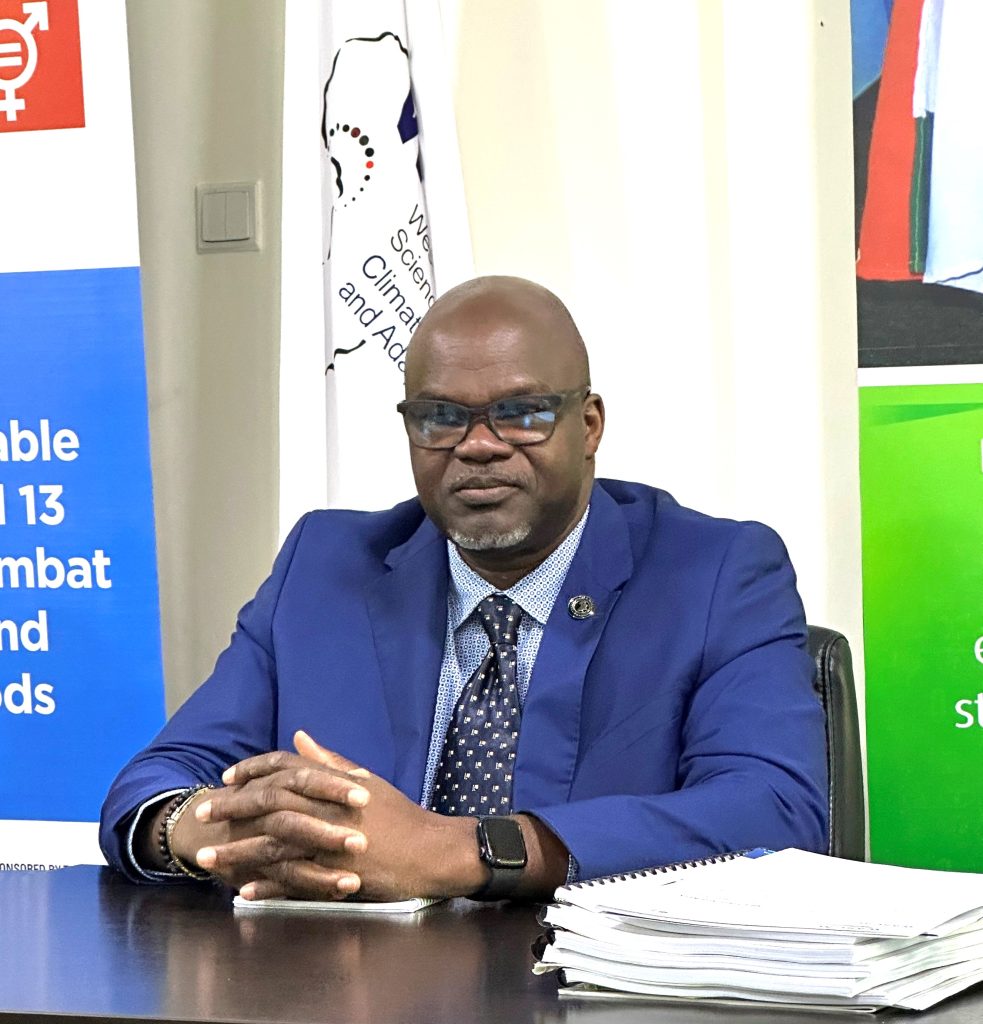Statement on World Environmental Day by the Executive Director of WASCAL, Prof. Emmanuel Wendsongré Ramdé.

As we commemorate World Environment Day under the theme “Land Restoration, Desertification, and Drought Resilience,” we must confront the harsh realities of climate change and environmental degradation devastating West Africa. This is more than an environmental concern; it is a crisis endangering our societies, economies, and future generations. The era of political promises is over; now is the moment for urgent, united action.
West Africa is on the frontline of climate change, experiencing its devastating impacts in real-time. In Nigeria, for instance, desertification is advancing at a rate of 0.6 kilometer per year, affecting 40 million people. In Burkina Faso, severe droughts have caused crop yields to drop by up to 50%, aggravating hunger and malnutrition. According to the United Nations, over 80% of land in the Sahel region is degraded, directly affecting the livelihoods of nearly 50 million people. The Intergovernmental Panel on Climate Change (IPCC) warns that if current trends continue, vast areas of West Africa could become uninhabitable by the end of this century. On the continent, the World Bank estimates that climate change could force up to 86 million Africans to migrate within their own countries by 2050.
Despite the immense challenges, all is not lost. WASCAL is leading the charge against these issues with research and innovation, capacity building, and policy advocacy. We have, over the past 13 years, built the capacity of more than 500 West Africans in 12 thematic areas including land use, human habitat, agriculture, biodiversity, water, energy, etc. We offer full scholarships to some of the region’s finest students, working together with West African and German universities.
We have also introduced four Master’s programmes across the value chain of Green Hydrogen.
Our Competence Centre based in Ouagadougou, houses several scientists and researchers who work collaboratively to provide sound policies and data to governments across West Africa and beyond. The ripple effects have been overwhelming as data have been used to advance the cause of advocacy at the grassroots. By promoting collaboration among West African nations, WASCAL seeks to develop and implement strategies for sustainable land management and climate resilience.
WASCAL, however, cannot tackle this alone. The complexity of climate issues requires a united effort from governments, donor agencies, policymakers, and other stakeholders including the private sector, and local communities. It is time to go beyond rhetoric and take bold, decisive actions.
First, we must prioritize sustainable land management. West African Governments should invest in reforestation and afforestation programmes, promote sustainable agricultural practices, and restore degraded lands. Climate resilience is achievable through capacity building, promotion of Renewable Energy and green hydrogen, and through focused research and innovation.
Also, we must enhance community resilience. This includes providing farmers with access to climate-resilient seeds, modern irrigation techniques, and timely weather information. Education and capacity building are crucial; empowering local communities with knowledge and resources will enable them to adapt to changing conditions.
Not all, we need robust policy frameworks. Governments must enact and enforce laws that protect the environment and promote sustainable development. This requires political will, adequate funding, and the involvement of all stakeholders, including civil society and the private sector.
As we commemorate World Environment Day, let us honour the theme of “Land Restoration, Desertification, and Drought Resilience” by taking tangible steps to preserve our environment. The future of West Africa depends on our actions today. Let us come together to restore our lands, protect our communities, and ensure a sustainable future for generations to come.

